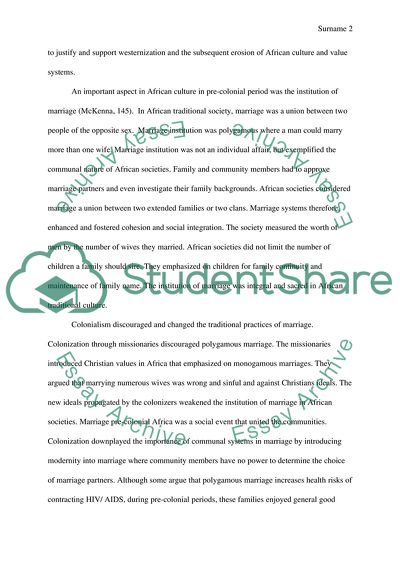Cite this document
(Colonization Effects on Africas Economy, Culture and Religion Coursework Example | Topics and Well Written Essays - 2000 words, n.d.)
Colonization Effects on Africas Economy, Culture and Religion Coursework Example | Topics and Well Written Essays - 2000 words. https://studentshare.org/politics/1843428-did-the-european-colonization-help-or-hurt-africa-in-economic-cultural-and-religious-aspects
Colonization Effects on Africas Economy, Culture and Religion Coursework Example | Topics and Well Written Essays - 2000 words. https://studentshare.org/politics/1843428-did-the-european-colonization-help-or-hurt-africa-in-economic-cultural-and-religious-aspects
(Colonization Effects on Africas Economy, Culture and Religion Coursework Example | Topics and Well Written Essays - 2000 Words)
Colonization Effects on Africas Economy, Culture and Religion Coursework Example | Topics and Well Written Essays - 2000 Words. https://studentshare.org/politics/1843428-did-the-european-colonization-help-or-hurt-africa-in-economic-cultural-and-religious-aspects.
Colonization Effects on Africas Economy, Culture and Religion Coursework Example | Topics and Well Written Essays - 2000 Words. https://studentshare.org/politics/1843428-did-the-european-colonization-help-or-hurt-africa-in-economic-cultural-and-religious-aspects.
“Colonization Effects on Africas Economy, Culture and Religion Coursework Example | Topics and Well Written Essays - 2000 Words”. https://studentshare.org/politics/1843428-did-the-european-colonization-help-or-hurt-africa-in-economic-cultural-and-religious-aspects.


